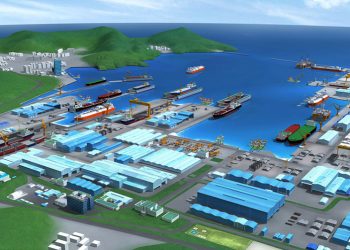A decline in world trade and shipping three years ago cut demand for ships
 While companies around the world are bouncing back from the global recession, shipyards are just now starting to see its effects.
While companies around the world are bouncing back from the global recession, shipyards are just now starting to see its effects.
Orders have plunged, prompting shipbuilders to slash payrolls and shift toward building drilling rigs and other offshore products for the energy industry.
The reason for the recession’s lagging effect on shipbuilding is peculiar to the industry. A decline in world trade and shipping three years ago cut demand for ships. But because big tankers and container vessels take three to four years to build, shipyards kept busy filling orders received before the financial crisis.
Orders for ships sank in 2009 and recovery has been slow, although analysts expect orders to increase later this year.
The downturn is affecting shipyards worldwide. China’s shipbuilding association last month said some of the country’s yards would suspend production after completing existing orders.
But the impact is especially deep in South Korea, home to six of the world’s 10 largest shipbuilders by sales. Ships are the country’s biggest export, accounting for 15% of total exports at an estimated $25 billion through May, according to the Korean government.
The situation at the world’s largest shipbuilder is typical. At the end of 2008, Hyundai Heavy Industries Co. reported an order backlog of 350 ships. Hyundai Heavy had enough work to operate at full capacity through this year
Production this year will be a record: 110 ships at two ports in South Korea.
The company received orders for just 10 small military ships in 2009, however, and 57 ships of various types last year. While sales are picking up the company forecast that orders will about double this year to more than $7 billion ships ordered now won’t start being assembled for at least two years.
Even though the order backlog has evaporated, ship construction can only speed up to a small degree. The several-year process of designing and building a ship is largely immutable.
With the global economy still fragile and financing prospects uncertain, it will be several years until orders are back to normal, people in the industry say.
That has meant ship prices are far lower than what they were in 2007. And to avoid a complete drop in shipyard activity, major shipbuilders deferred some deliveries that had been promised for 2010 and this year.
“It’s absolutely a buyers’ market,” says Gerry Wang, chief executive of Seaspan Corp., a Vancouver-based ship owner and marine logistics company. “The shipbuilders need orders to fill up the docks. They are very, very hungry
Source: Wall Street Journal






























































